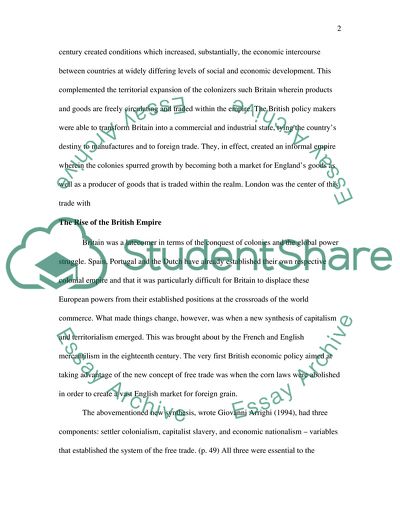Cite this document
(Imperialism of Free Trade and the British Empire Essay - 2, n.d.)
Imperialism of Free Trade and the British Empire Essay - 2. https://studentshare.org/history/1711196-how-does-the-concept-of-the-imperialism-of-free-trade-explain-the-rise-and-fall-of-the-british-empire
Imperialism of Free Trade and the British Empire Essay - 2. https://studentshare.org/history/1711196-how-does-the-concept-of-the-imperialism-of-free-trade-explain-the-rise-and-fall-of-the-british-empire
(Imperialism of Free Trade and the British Empire Essay - 2)
Imperialism of Free Trade and the British Empire Essay - 2. https://studentshare.org/history/1711196-how-does-the-concept-of-the-imperialism-of-free-trade-explain-the-rise-and-fall-of-the-british-empire.
Imperialism of Free Trade and the British Empire Essay - 2. https://studentshare.org/history/1711196-how-does-the-concept-of-the-imperialism-of-free-trade-explain-the-rise-and-fall-of-the-british-empire.
“Imperialism of Free Trade and the British Empire Essay - 2”. https://studentshare.org/history/1711196-how-does-the-concept-of-the-imperialism-of-free-trade-explain-the-rise-and-fall-of-the-british-empire.


